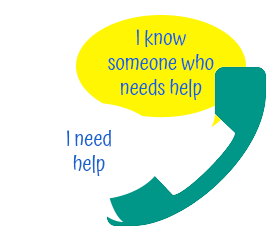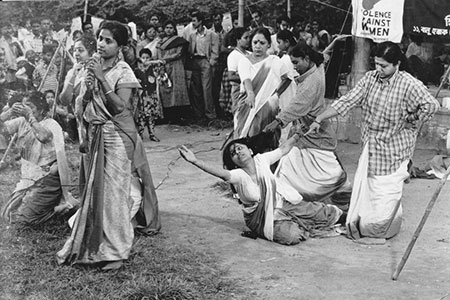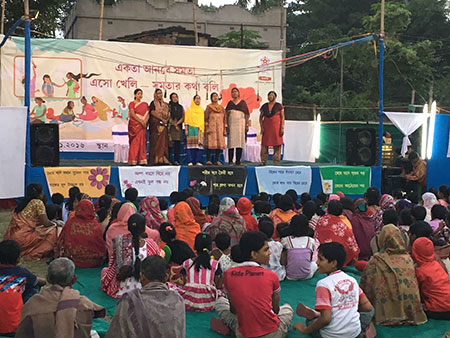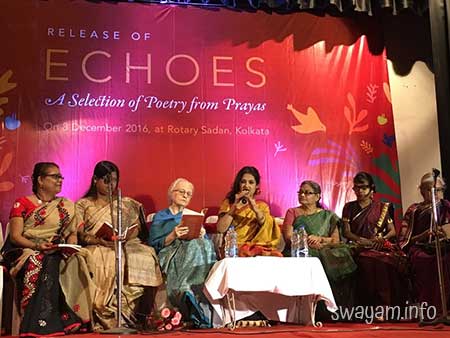Your Rights & The Law
Legal Rights for Women
Some important fundamental rights to remember, that apply all citizens, including women:
- You have the right to lead a dignified, safe and violence free life
- You have the right to equality and non-discrimination
- You have the right over your own body
- You have the right to express your sexuality and desire as you wish
Each Act below can be selected as read separately as a PDF.
The Protection of Women from Domestic Violence Act, 2005 (PWDVA)
For women facing domestic violence, you are entitled to the following reliefs under the PWDVA, 2005.
- Protection orders to stop domestic violence
- The right to live in your marital home or shared household
- The right to have custody of your children
- The right to maintenance and medical relief for yourself and your children
- The right to compensation
Click here for link- https://drive.google.com/file/d/1vD9Q3InHRBtcIQ78RI6PPjFLlkr6wj9Z/view?usp=sharing
If you wish to divorce your husband, you may file a matrimonial suit
These are other laws that protect you:
The Indian Penal Code
If you are a married woman facing abuse from your husband or in-laws, you can also file a criminal case under section 498A of the Indian Penal Code. Click here for the link- https://drive.google.com/file/d/1lV94ifn03G670kx3Kf8HFKFxqOGyl_Jy/view?usp=sharing
If you are an unmarried woman facing abuse from a male, there are also provisions under the law to file a criminal case. Specifically, section 376 of the Indian Penal Code is used to prosecute perpetrators of rape.
The Criminal Law Amendment Act, 2013
The Criminal Law Amendment Act, 2013 also protects you from violence and also criminalises several other actions including acid attacks, stalking, sexual harassment, rape and voyeurism.
Click here for the link- https://drive.google.com/file/d/1FX3DXl88qWs7ZsKVbHp3ppPdvkv53ISx/view?usp=sharing
The Protection of Children from Sexual Offences Act, 2012
If a child is facing sexual abuse, there are provisions for compensation and punishment of the perpetrator(s) under the Protection of Children from Sexual Offences Act (2012).
Click here for the link-
https://drive.google.com/file/d/1ByJAp953Uj1SJDSrH_uWsLh2-sOyWMsq/view?usp=sharing
The Sexual Harassment of Women at the Workplace (Prevention, Prohibition and Redressal) Act, 2013
Women have a right to have to lead a violence free life also in the workplace. This Act serves to protect women from harassment at work and aims to prevent such cases occurring as well as detailing redressal procedures for complaints of sexual harassment in the workplace. The Act also requires organisations to have a Sexual Harassment and Prevention Committee to execute these responsibilities. Sexual harassment includes physical contact and advances, requests for sexual favours, making sexually coloured remarks, showing pornography or any unwanted physical, verbal or non-verbal contact of a sexual nature.
Click here for the link- https://drive.google.com/file/d/1jrELWGVDqwIVsOZSF7hLdisfMVDypV-s/view?usp=sharing
The Maintenance and Welfare of Parents and Senior Citizens Act, 2007
Our elders, especially those who are women are often abused, abandoned or neglected. If you are one of them, you are also entitled to live a violence free life. And under this Act certain provisions can be granted for the elderly person, for example, a monthly allowance.
Click here for the link- https://drive.google.com/file/d/1JA-jQmSBdjmIZoBfdAJqf63c7alHm4-g/view?usp=sharing
The Rights of Persons with Disabilities Act, 2016
Disabled women are particularly vulnerable to abuse and can seek protection using the Rights of Persons with Disabilities Act.
Click here for the link- https://drive.google.com/file/d/12Qi52g9L8jhFn_FXiYPQoGCgXCUMHXVN/view?usp=sharing




